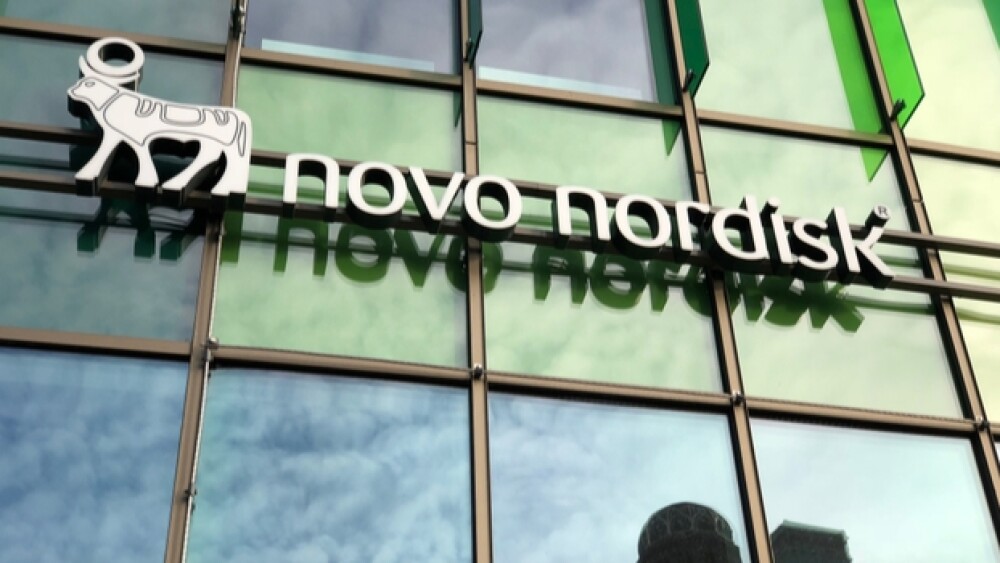Novo Nordisk struck a licensing deal Thursday with Ventus Therapeutics valued at up to $700 million to develop and commercialize peripherally-restricted NLRP3 inhibitors.
Novo Nordisk struck a licensing deal Thursday with Ventus Therapeutics valued at up to $700 million to develop and commercialize peripherally-restricted NLRP3 inhibitors.
Danish drugmaker Novo Nordisk A/S will combine its expertise in cardiometabolic diseases with Ventus’ lead NLRP3 inhibitor program VENT-01 to target a broad range of diseases. Conditions the company intends to go after include nonalcoholic steatohepatitis and chronic kidney disease.
Under terms of the agreement, Novo Nordisk will provide Ventus with $70 million in an upfront payment. Ventus will be eligible to receive up to an additional $633 million in potential clinical, regulatory, and commercial milestones. If a therapeutic from the collaboration makes it to the commercial market, Ventus will be eligible for tiered royalties.
Massachusetts-based Ventus will retain the right to develop NLRP3 inhibitors for certain systemic diseases, including specific inflammatory and respiratory diseases.
Ventus will also hold onto rights for its distinct brain-penetrant NLRP3 inhibitor program. That asset, VENT-02, is expected to enter the clinic in 2023 with an initial focus on epilepsy and Parkinson’s disease.
“The collaboration validates the company’s structural biology capabilities that enable the discovery and development of “highly differentiated molecules with novel chemical structures,” Marcelo Bigal, president and chief executive officer of Ventus, told BioSpace Thursday morning.
Bigal also noted that VENT-01 is expected to enter the clinic next year.
Beyond VENT-02, the company has a third candidate that targets cGAS, a key regulator of the cGAS/stimulator of interferon genes (STING) pathway. A fourth candidate is undisclosed. Both assets are expected to enter in-human testing within the following year.
NLRP3 (NLR pyrin domain-containing 3) is a key mediator of proinflammatory cytokines IL-1b and IL-18. It is targeted in diseases where inflammation is the critical driver of pathology.
Activation of the NLRP3 inflammasome in the body is implicated in many diseases caused by chronic, uncontrolled inflammation. An overactive NLRP3 inflammasome is associated with systemic conditions, including fibrotic, dermatological and rheumatological diseases. It also plays a role in neurological disorders such as Alzheimer’s disease and Parkinson’s, Ventus noted in the announcement. By targeting NLRP3, an overactive immune response can be tamped down.
Bigal called NLRP3 an exciting field because of the complex biology involved and the wide range of issues caused by over-activation of the body’s immune response.
Over the past several years, NLRP3 research has drawn the eyes of multiple companies.
In 2020, Roche snapped up Ireland-based Inflamazome and its NLRP3 program. Earlier this month, Nodthera Limited announced positive, early-stage pharmacokinetic and pharmacodynamic data from two clinical programs, NT-0796 and NT-0249. And, earlier this year, California-based NodThera announced it developed a family of NLRP3 inhibitors that are potential therapeutics for inflammatory and age-related diseases.
Karen Conde-Knape, senior vice president of global drug discovery at Novo Nordisk, said NLRP3 is a biologically relevant target. The company noted it has significant potential in treating liver, kidney and cardiometabolic diseases. Conde-Knape touted the Ventus program, saying the company’s differentiated NLRP3 inhibitor program has best-in-class properties and has generated compelling pre-clinical results.
The licensing deal is a significant financial boost for Ventus. Earlier this year, the company secured $140 million in a Series C financing round. That round came less than a year after Ventus raised $100 million in a Series B financing round.
The funds from the Novo Nordisk deal, combined with the previous raises, is expected to finance the company and its investigational programs through 2025. Bigal said the agreement provides Ventus with “the peace of mind” not to have to go into the public domain and file for an initial public offering.





